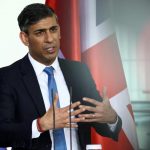The ver.di chairman Frank Werneke points out SWR-Interview calls for stricter rules for strikes. The union boss criticizes the traffic light dispute over basic child security.
Is he a little jealous of GDL boss Claus Weselsky and his media presence in the past few weeks? With its 40,000 members, the train drivers' union is ultimately significantly smaller than ver.di with its almost two million. Frank Werneke smiles briefly, then the ver.di chairman waves him off.
“What counts for me is what we get out for our members. And that’s how I measure my work,” he says in an interview with SWR.
Did Weselsky exaggerate?
However, Claus Weselsky also got a lot out of it for his train drivers – with tough conditions, some criticize. Too hard? Union colleague Werneke prefers not to comment on this, just this much: “It is important to make sure that the general support for the industrial action among the population does not break off.”
Just this week, ver.di again called for strikes in local public transport, including in Baden-Württemberg and North Rhine-Westphalia. They are among the few where no collective bargaining agreement has yet been reached.
The ver.di boss believes it is transparent that employers, Federal Transport Minister Volker Wissing from the FDP or representatives of the Union are calling for changes to the right to strike: “Because they have no interest in the employees' conditions improving in the long term. Especially where If there is a successful collective bargaining policy, the right to strike should be restricted.”
Warning strikes would have less effect
Werneke believes that if the unions had to announce warning strikes four days in advance, as suggested, they would be ineffective: “Then it would be easy for employers to organize strikebreakers. We see this regularly in the airport area in aviation security or baggage handling.”
So would it be better to have mandatory arbitration before a strike is allowed? “This is a suggestion from people who have never had collective bargaining before,” says the ver.di chairman. “What's the point of that if there hasn't been any negotiations yet?”
“Totally otherworldly”
Werneke criticized in SWR-Interview Statements by FDP party leader and Federal Finance Minister Christian Lindner that he wanted to make people “more interested in working overtime.” “This image of a large proportion of employees who are too refined to work is completely out of this world,” said the union boss. “If someone works an extra hour of overtime, that's perfectly fine. The problem is that the majority of it doesn't get paid.”
Werneke sees FDP parliamentary group leader Christian Dürr's push for a more flexible pension, for example at 72, as a diversionary tactic: “The FDP's idea behind it is of course to raise the standard entry age. Anyone who wants to work longer can do that today .”
Traffic light dispute drives Werneke “to despair”
The dispute in the government over basic child welfare is also being used too much for “party political profiling,” said Werneke. “That is simply not acceptable. One in four children in Germany lives in poverty.”
It could be that the bill from Family Minister Lisa Paus from the Greens has weaknesses, said the ver.di chairman. “But then I expect that a coalition will work constructively to ensure that basic child protection begins during this legislative period.”
The topic makes him a bit “desperate”. “Wanting to go into a federal election campaign in 2025 with a bunch of failed projects can't actually be a promising strategy for any of the parties involved. But that's exactly what they're doing right now.”
Jim-Bob Nickschas, ARD Berlin, tagesschau, April 19, 2024 3:00 p.m





